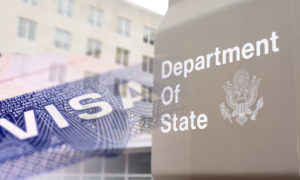 U.S. B-1/ B-2 visa validity is dependent on what kind of passport a person is holding. Currently, there are 38 countries whose citizens may enter the United States visa free. All other nationalities are required to obtain a visa at a U.S. Embassy or Consulate abroad.
U.S. B-1/ B-2 visa validity is dependent on what kind of passport a person is holding. Currently, there are 38 countries whose citizens may enter the United States visa free. All other nationalities are required to obtain a visa at a U.S. Embassy or Consulate abroad.
Citizens of some countries have longer B-1/ B-2 visa validity than other countries. For example, citizens from the Philippines, Thailand, Indonesia, China are eligible to receive up to 120 months (10 year multiple-entry visa). After 10 years, citizens of those countries are required to apply for a new visa. Vietnamese citizens however are only eligible to receive multiple-entry visas for up to one year while Cambodian citizens are limited to double-entry visas for a maximum of three months. Overall visa validity is determined by the U.S. Department of State which is based on the reciprocity schedule. According to the State Department, the principle of reciprocity occurs when a foreign government imposes fees on U.S. citizens for certain types of visas, the United States will impose a reciprocal fee on citizens of those countries for similar types of visas.
More information on reciprocity can be found at https://travel.state.gov/content/travel/en/us-visas/Visa-Reciprocity-and-Civil-Documents-by-Country.html.
For more information, contact us at




